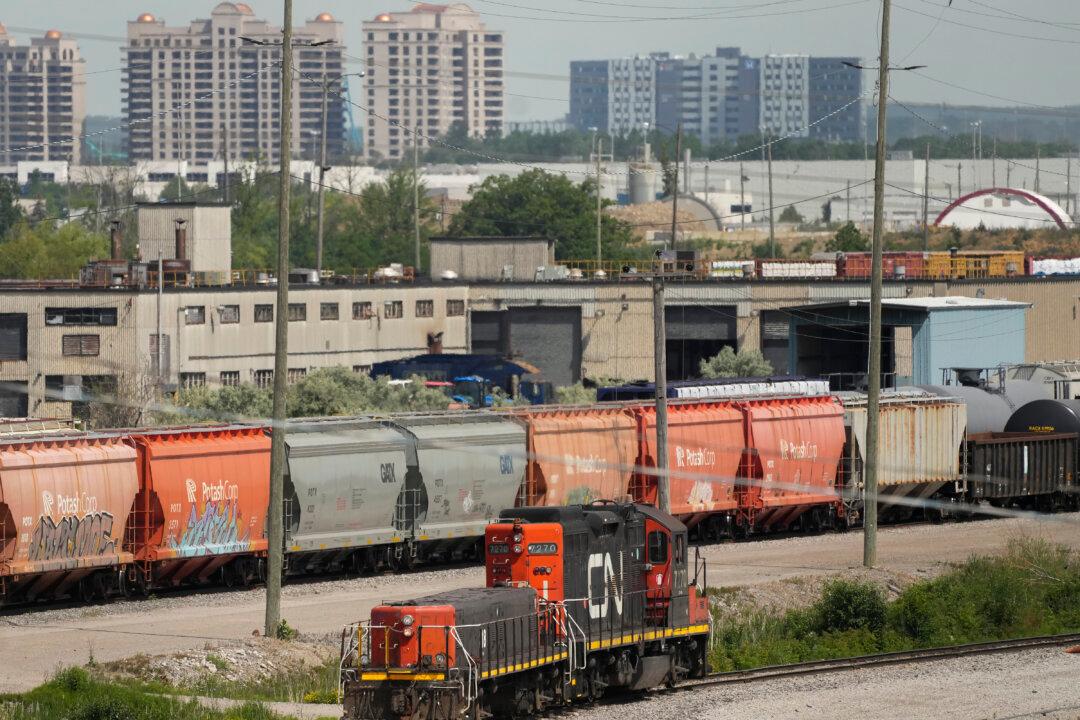Canada is bracing for rail strikes this week as workers at the two primary railways either go on strike or are locked out by their employers. The results of a prolonged shutdown could be devastating for the industry and consumers who would be faced with product shortages and higher prices, but at least one economist is predicting major impact on the average Canadian could be avoided as the government likely won’t allow a strike to go on for long.
Canadian National Railway Co. and Canadian Pacific Kansas City Ltd. (CPCK) both face a potential work stoppage on Aug. 22 if they fail to negotiate agreements with the thousands of employees represented by the Teamsters Canada Rail Conference (TCRC).





